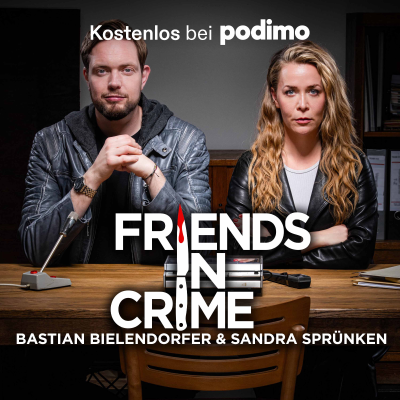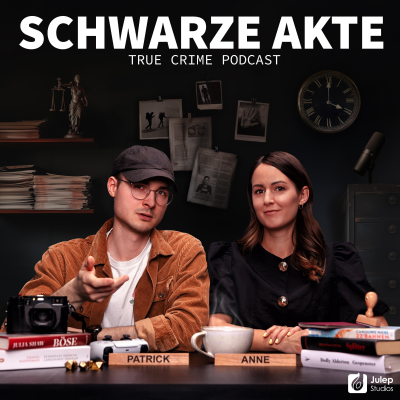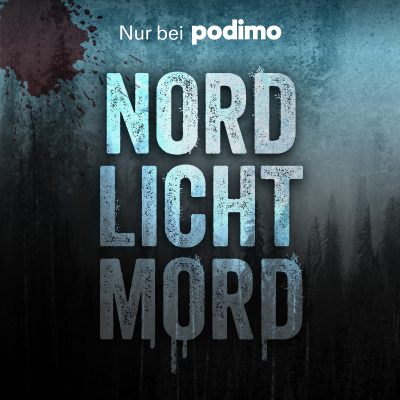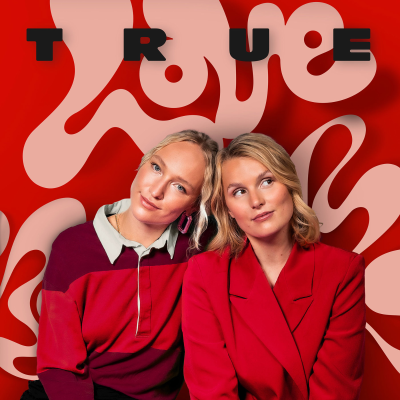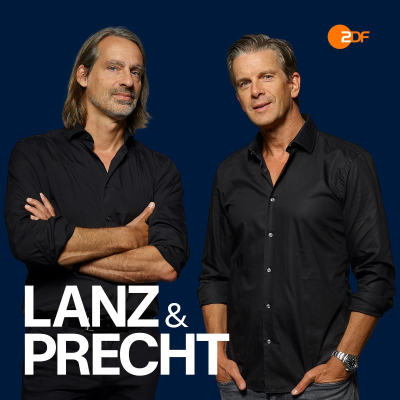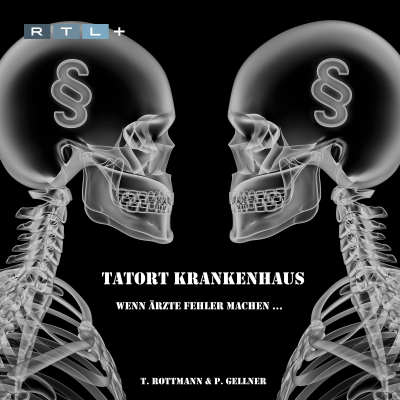
De Balie
Podcast von De Balie
Nimm diesen Podcast mit

Mehr als 1 Million Hörer*innen
Du wirst Podimo lieben und damit bist du nicht allein
Mit 4,7 Sternen im App Store bewertet
Alle Folgen
385 FolgenThroughout the world, migration has become the issue on which elections are decided. Why? And what does that tell us about ourselves? With Hiroshi Motomura, Matthew Longo, Wafa Al Ali, Nanda Oudejans en Martijn Stronks. While the EU continually breaks human rights to stop migrants from reaching Europe, the US is plunging itself into a constitutional crisis over a wrongfully deported migrant that is now detained in a Salvadorian prison. Migration is such a loaded subject, that it is difficult to see what an ethical migration policy could and should actually look like. Tonight, we discuss migration and migration policy, national borders and nationalist politics, and the toxic stranglehold they have on each other. About the speakers: Hiroshi Motomura is world renowned migration scholar, working at the UCLA School of Law. In his new book Borders and belonging, he offers a nuanced take on the very complex issue of migration. Starting with the national border as a concept, Motomura asks fundamental questions about the root causes of migration and offers realistic proposals towards fair migration policy. Matthew Longo is Assistant Professor of Political Science at Leiden University, where he teaches political theory. His work focuses on problems of borders and migration, with a thematic interest in questions of sovereignty, authority and freedom. He wrote the award winning books The Picnic: A Dream of Freedom and the Collapse of the Iron Curtain and The Politics of Borders: Sovereignty, Security, and the Citizen after 9/11. Nanda Oudejans is Associate Professor of Philosophy of Law and Director of the College of Law at the Faculty of Law, University of Amsterdam. Prior to joining the University of Amsterdam, she held academic positions at Utrecht University, VU Amsterdam, and Tilburg University. From 2012 to 2014, she served as Senior Policy Advisor to the Advisory Committee on Migration Affairs at the Ministry of Justice and Security in The Hague. Wafa Al Ali is a legal affairs journalist at the political desk of newspaper NRC, with a specific focus on asylum. For NRC, she also created the podcast series Generatie 9/11, about how Islamic and/or Arab youths experienced the aftermath of the attacks in the Netherlands. Al Ali chose journalism in 2020, after working in the NGO sector for several years. Martijn Stronks studied law and philosophy at the Vrije Universiteit Amsterdam and Cape Town University, South Africa. After his studies he became Editor-in-Chief of the migration law journal Migrantenrecht and its successor Asiel&Migrantenrecht. Between 1 september 2012 and 31 augustus 2016 he wrote a legal and philosophical dissertation on the role of time in European migration law. Since September 2016 he works at the Amsterdam Centre of Migration and Refugee Law (ACMRL) of the Vrije Universiteit Amsterdam. Since 2025 he is head of ACMRL. Programme editor and moderator: Veronica Baas In collaboration with Vrije Universiteit Amsterdam --- Want to know more about Forum on European Culture? Here [https://debalie.nl/forum-on-european-culture-art-against-the-tyrants-2025/] you can find more information. Zie het privacybeleid op https://art19.com/privacy [https://art19.com/privacy] en de privacyverklaring van Californië op https://art19.com/privacy#do-not-sell-my-info [https://art19.com/privacy#do-not-sell-my-info].
Amidst the profound social change and political turmoil of post-war Japan, a bold generation of avant-garde artists and photographers emerged in the 1960s, forever transforming the global art landscape. Japanese Avant-Garde Pioneers' director Amélie Ravalec attended the Dutch premiere at De Balie in Amsterdam to talk about the film with our cinema curator Stefan Malešević. Watch the film screening of Japanese Avant-Garde Pioneers until June 23, exclusively at De Balie. The 1960s era in Japan was a time of profound social change, political unrest and student protests. The turbulent times of the postwar era inspired an artistic explosion in Japan, with the emergence of a revolutionary scene of avant-garde artists who pioneered many disciplines: experimental and erotic photography, “Angura” theatre and underground street performances, apocalyptic Butoh dance, surreal illustrations and seminal graphic design. A new aesthetic of photography was born: “Are, Bure, Boke” (rough, dark and out of focus), pioneered by Moriyama Daidō and the Provoke magazine photographers. Araki beautified bondage and Hosoe Eikoh sublimated the male body. Ishiuchi Miyako captured her experience of American military bases. Kawada Kikuji’s era-defining photobook The Map captured the poignancy of Hiroshima’s trauma. Master of underground theatre Terayama Shūji produced countless magical, surreal and vividly colourful films, plays and photobooks, Yokoo Tadanori and Awazu Kiyoshi revolutionised graphic design with their incandescent theatre posters, Tanaami Keiichi, Japan’s answer to Andy Warhol, developed his unique kaleidoscopic vision of Pop-Art, and Butoh founders Hijikata Tatsumi and Ohno Kazuo impacted modern dance forever with their dance of darkness and light. Watch the official trailer here [https://www.youtube.com/watch?v=W9ZDuVLG_no]. Get your tickets for the film screening at De Balie here [https://debalie.nl/cinema/cinedialoog-japanese-avant-garde-pioneers/]. Intro music: Andrii Poradovskyi --- Want to know more about Forum on European Culture? Here [https://debalie.nl/forum-on-european-culture-art-against-the-tyrants-2025/] you can find more information. Zie het privacybeleid op https://art19.com/privacy [https://art19.com/privacy] en de privacyverklaring van Californië op https://art19.com/privacy#do-not-sell-my-info [https://art19.com/privacy#do-not-sell-my-info].
Wie bewaakt de rechtsstaat? Rechtsstatelijke principes staan onder druk en het vertrouwen in instituties brokkelt af. De Nederlandse rechtsstaat moet dringend gerepareerd worden. Maar hoe? Met hoogleraren Kutsal Yesilkagit, Marlies Honingh en Jonathan Soeharno, Oprichter van het Instituut voor Publieke Waarden (IPW) Albert Jan Kruiter en Senior wetenschappelijk medewerker, Sociaal en Cultureel Planbureau (SCP) Lonneke van Noije. Onafhankelijke rechters, een vrije pers en een overheid die zich aan haar eigen regels houdt: het zijn geen vanzelfsprekendheden. Rapport op rapport toont aan dat de rechtsstaat erodeert. Daar speelt niet in de laatste plaats de politiek zelf een grote rol in. Populistische partijen zaaien twijfel over rechterlijke uitspraken en zagen aan de journalistieke onafhankelijkheid. Als de politiek het niet doet, wie bewaakt dan de rechtsstaat? Wat is de rol van rechters, ambtenaren en burgers? Tijdens deze avond in De Balie onderzoeken we hoe stevig de Nederlandse rechtsstaat nog is – en wat nodig is om haar te verdedigen. Moderators: Kees Foekema en Tamar de Waal In samenwerking met: Boom Zie het privacybeleid op https://art19.com/privacy [https://art19.com/privacy] en de privacyverklaring van Californië op https://art19.com/privacy#do-not-sell-my-info [https://art19.com/privacy#do-not-sell-my-info].
Few words carry such heavy connotations and are at the same time so prone to misunderstanding, as the word antisemitism. What do we talk about when we talk about antisemitism? British historian and author Mark Mazower discusses how the meaning of antisemitism has changed over time. In his latest book On Antisemitism: A Word in History, Mark Mazower traces the long history of antisemitism from its ancient origins to its many transformations in the modern world. The term was coined in the nineteenth century by Europeans who saw assimilating Jews as a threat to their ethnic-nationalist ideals. They combined age-old prejudices with racist pseudoscience, laying the groundwork for the horrors of Nazism and the Holocaust. Nowadays, the Israel-Palestine conflict has re-ignited debates in both Israel, European countries and the United States. The fight against extremists became intertwined with the question: when is criticism of Israel antisemitic? In De Balie, we dissect a loaded term. Mark Mazower (1958) is a professor of history at Columbia University in New York, specialised in modern Greece, 20th century Europe and international history. He is the author of award-winning best-sellers such as Dark Continent: Europe’s 20th Century (1998), The Balkans (2000), and Hitler’s Empire: Nazi Rule in Occupied Europe (2008). He also writes regularly for the Financial Times, The New York Times, and the New York Review of Books, among others. Nadia Bouras (1981) is associate professor and researcher at the Institute of History at Leiden University. She is also affiliated with the Netherlands Institute in Morocco (NIMAR), the center of expertise in Morocco studies at Leiden University. Bouras regularly appears as an expert in the media on current affairs in the field of integration and migration. Her latest publication, Een Klas Apart (2020), studied the history of the Arab School in Amsterdam-Zuid. Emile Schrijver (1962) is General Director of the Jewish Cultural Quarter in Amsterdam, which includes among others the Jewish Museum, the Portuguese Synagogue, the Holocaust memorial site Hollandsche Schouwburg and the National Holocaust Museum. Schrijver is also professor by special appointment of Jewish Book History at the University of Amsterdam’s (UvA) Faculty of Humanities. In January 2025, he and Ruth Peeters published the book Ooggetuigen van het antisemitisme, a collection of eyewitness accounts of antisemitism, from the first centuries to the present. Programme editor: Larissa Biemond Moderator: Yoeri Albrecht --- Want to know more about Forum on European Culture? Here [https://debalie.nl/forum-on-european-culture-art-against-the-tyrants-2025/] you can find more information. Zie het privacybeleid op https://art19.com/privacy [https://art19.com/privacy] en de privacyverklaring van Californië op https://art19.com/privacy#do-not-sell-my-info [https://art19.com/privacy#do-not-sell-my-info].
Thijs Launspach is bekend geworden als psycholoog die menigeen van nuchter advies voorziet over zaken als stress, werkdruk en mentale gezondheid. In zijn nieuwste boek Het is jullie zo gegund neemt Launspach zijn eigen worsteling onder de loep: een onvervulde kinderwens door verminderde vruchtbaarheid. Er is sprake van een heuse ‘spermacrisis’ leert Launspach. De gemiddelde hoeveelheid spermacellen van een man daalde de afgelopen vijftig jaar met 62 procent. Over zijn kinderwens schrijft Launspach in Vrij Nederland [https://www.vn.nl/het-is-jullie-zo-gegund]: ‘Mijn ervaring is dat er weinig (mentale) hulp voorhanden is, zeker als je in dit traject ‘slechts’ de partner bent. Dat is logisch, want je speelt in feite een bijrol. Je partner lijdt meer. Maar dat betekent niet dat je er niet van alles bij kunt voelen. In mijn geval maakte het dat ik me regelmatig verdomd alleen voelde.’ Thijs Launspach (1988) is psycholoog en schrijver. Launspach schreef boeken over stress, burn-out, en millennials op het werk. Hij schreef de bestseller Fokking Druk (2018), Je bent al Genoeg (2022), Werk kan ook uit (2020) en Werken met Millennials (2019). Hij heeft een wekelijkse column in het Algemeen Dagblad en hij is een van de docenten aan The School of Life. In deze wekelijkse talkshow van De Balie interviewen programmamakers de makers die hen inspireren. Van cabaretiers tot schrijvers en van theatermakers tot kunstenaars. Interview door programmamaker Veronica Baas. De podcast wordt geïntroduceerd door programmamaker Kees Foekema. --- Lees hier [https://debalie.nl/forum-on-european-culture-art-against-the-tyrants-2025/] meer over Forum on European Culture. Zie het privacybeleid op https://art19.com/privacy [https://art19.com/privacy] en de privacyverklaring van Californië op https://art19.com/privacy#do-not-sell-my-info [https://art19.com/privacy#do-not-sell-my-info].


